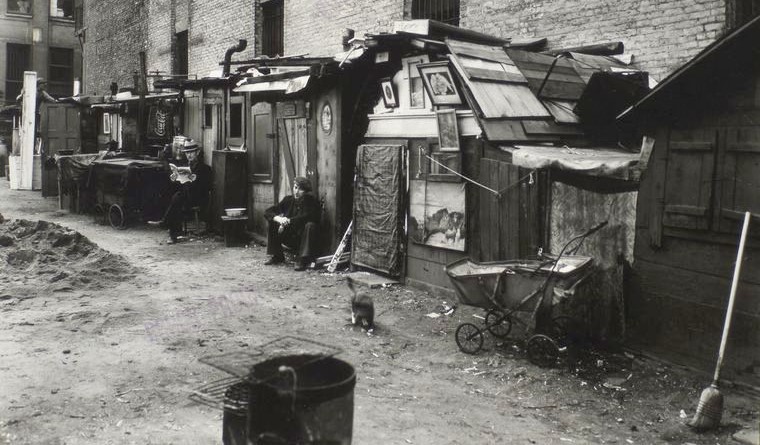
Overview: The 1930s
The Significance of the Great Depression
The Great Depression marked a major turning point in the history of the United States. The economic downturn greatly expanded the scope and scale of the federal government and created the modern welfare state.
The Depression of the 1930s was the worst economic catastrophe in American history. By 1933, a quarter of the workforce was jobless and many families lost their savings when thousands of banks closed. Depression era unemployment was steeper and lasted longer in the United States than in any other advanced country. High unemployment lasted for a decade in spite of federal efforts to help the economy recover.
Causes of the Depression
Causes of the Great Depression included: insufficient purchasing power among the middle class and the working class to sustain high levels of production, falling crop and commodity prices prior to the Depression, the stock market’s dependence on borrowed money, and wrongheaded government policies, including high tariffs that reduced international trade and contracted the money supply.
Political and Social Consequences
The Great Depression transformed the American political and economic landscape. It produced a major political realignment, creating a coalition of big-city ethnics, African Americans, organized labor, and Southern Democrats committed, to varying degrees, to interventionist government. It strengthened the federal presence in American life, spawning such innovations as national old-age pensions, unemployment compensation, aid to dependent children, public housing, federally-subsidized school lunches, insured bank depositions, the minimum wage, and stock market regulation. It fundamentally altered labor relations, producing a revived labor movement and a national labor policy protective of collective bargaining. It transformed the farm economy by introducing federal price supports. Above all, it led Americans to view the federal government as an agent of action and reform and the ultimate protector of public well-being.
The Great Depression and American Culture
The Great Depression challenged certain basic precepts of American culture, especially the faith in individual self-help, business, the inevitability of progress, and limited government. The Depression encouraged a search for the real America. There was a new interest in “the people,” in regional cultures, and in folk traditions. The movies played a crucial role in sustaining American ideals in a time of social upheaval across Europe. Films projected images of a world in which financial success was possible and of a society in which class barriers could be overcome.